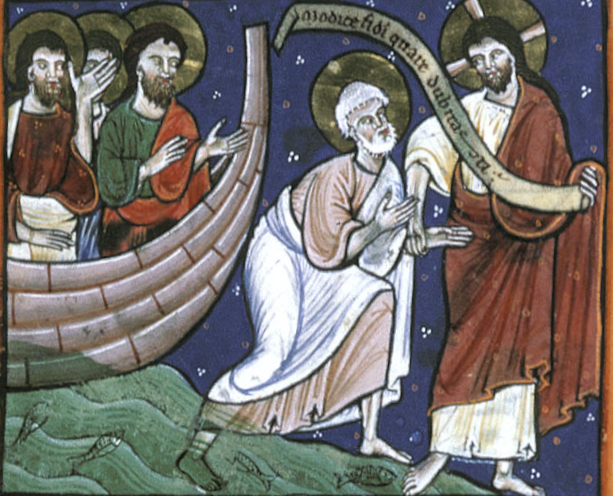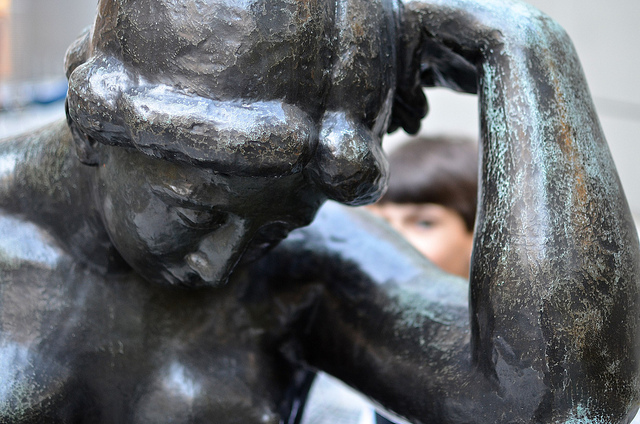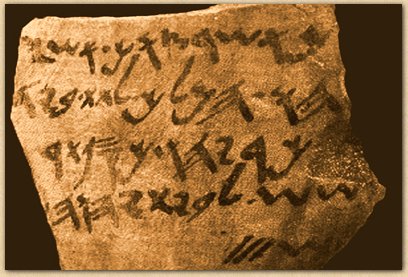This is an entry in the “Acrostic Contemplations” and began as a sermon for the Second Sunday in Lent (February 25, 2024).
“[The LORD] brought Abram outside and said, ‘Look toward heaven and count the stars, if you are able to count them.” Then he said to him, “So shall your descendants be.’ And he believed the LORD, and the LORD reckoned it to him as righteousness.” – Gen. 15:5-6
“Now the words, ‘it was reckoned to [Abraham as righteousness]’ were written not for his sake alone, but for ours also. It will be reckoned to us who believe in him who raised Jesus our Lord from the dead, who was handed over to death for our trespasses and was raised for our justification.” — Rom. 4:23-25
Many years ago, I came to the belief that most Christians in America have lost their faith. It doesn’t matter whether they are Evangelicals or liberal progressives, Baptists or Episcopalians, we have lost our faith. Christian faith is simply this: the belief in God’s promises moving us to act. Today, American Christians either no longer belief in Scripture and the promises of God or, confessing they do believe, they fail to act on those beliefs.
The prime example of this faith, belief turned into action, is Abraham. Again and again throughout the Bible, Abraham is brought forward as an example and exemplar of faith. In Hebrews, the preacher says, “By faith Abraham obeyed when he was called to set out for a place that he was to receive as an inheritance; and he set out, not knowing where he was going” (Heb. 11:8). The reference is to God’s call to Abraham (Abram, as was) recorded in Genesis 12. “The Lord said to Abram, ‘Go from your country.’ … So, Abram went, as the Lord had told him.” It was that simple. Now, I expect, between verses 3 and 4 (“Go” and “Went”) there was a bit of too and fro. Abram was human, after all, and this was a very big decision, to leave his home and all that he knew. Still, he went and this is the hallmark of Abraham’s walk with God.
God Promises: Abraham Believes (and Acts)
As Paul says (Rom. 4:13), “the promise that [Abraham] would inherit the world did not come to Abraham or to his descendants through the law but through the righteousness of faith.” The Law (which came after Abraham anyway) is about our day-to-day transactions of life, with one another and with God; faith is the future, it is accepting that God will provide what he has promised, even though we cannot see it right now.
God not only promised Abraham the land, he promised to make him a “great nation,” yet all the evidence pointed against God being able to keep that promise. Abraham and Sarah were both old and decrepit and even in antiquity the basics of female biology were understood. Sarah thought the whole idea so ridiculous she laughed at the messenger, and so their son was eventually named “Yitzhak.” Sarah’s mocking laughter turned into joyous guffaws and tearful chortles as God’s promises, and their deepest desires, were fulfilled.
Paul tells us that Abraham “did not weaken in faith” nor did any “distrust make him waver concerning the promise of God.” Far be it from me to contradict the Apostle, but I would suggest that Abraham likely experienced plenty of moments of doubt and uncertainty (and Genesis bears this out), yet he and Sarah pressed on. That is the evidence of faith, it is not in the reciting of the words “I believe,” it is the actions which follow those words. Abraham believed that God would lead him to that Promised Land so he got up and left the land of his ancestors, he trusted in God, and “his faith was reckoned to him as righteousness.”
At the burning bush, God told Moses that the sign that he, the LORD God, was with him and Israel to deliver them out of slavery in Egypt was that they would worship on that very mountain where Moses was standing, when it was all over. Moses would not see that sign until after he (and Israel) had acted in faith, believing that God was with them and would bring them safely out of Egypt. Moses believed God and so all Israel was saved and so too, was God continuing to fulfill his promises to Abraham.
Jesus came proclaiming “the time is fulfilled, and the kingdom of God has come near; repent, and believe in the good news” (Mark 1:15). The good news is God’s promise of the forgiveness of sins and life everlasting. As Paul said, our faith “will be reckoned to us who believe in him who raised Jesus our Lord from the dead, who was handed over to death for our trespasses and was raised for our justification.”
Believe in this promise of Jesus: that he has died for your sins and rose from the dead, the first of us all. Believe and act; this is faith.





